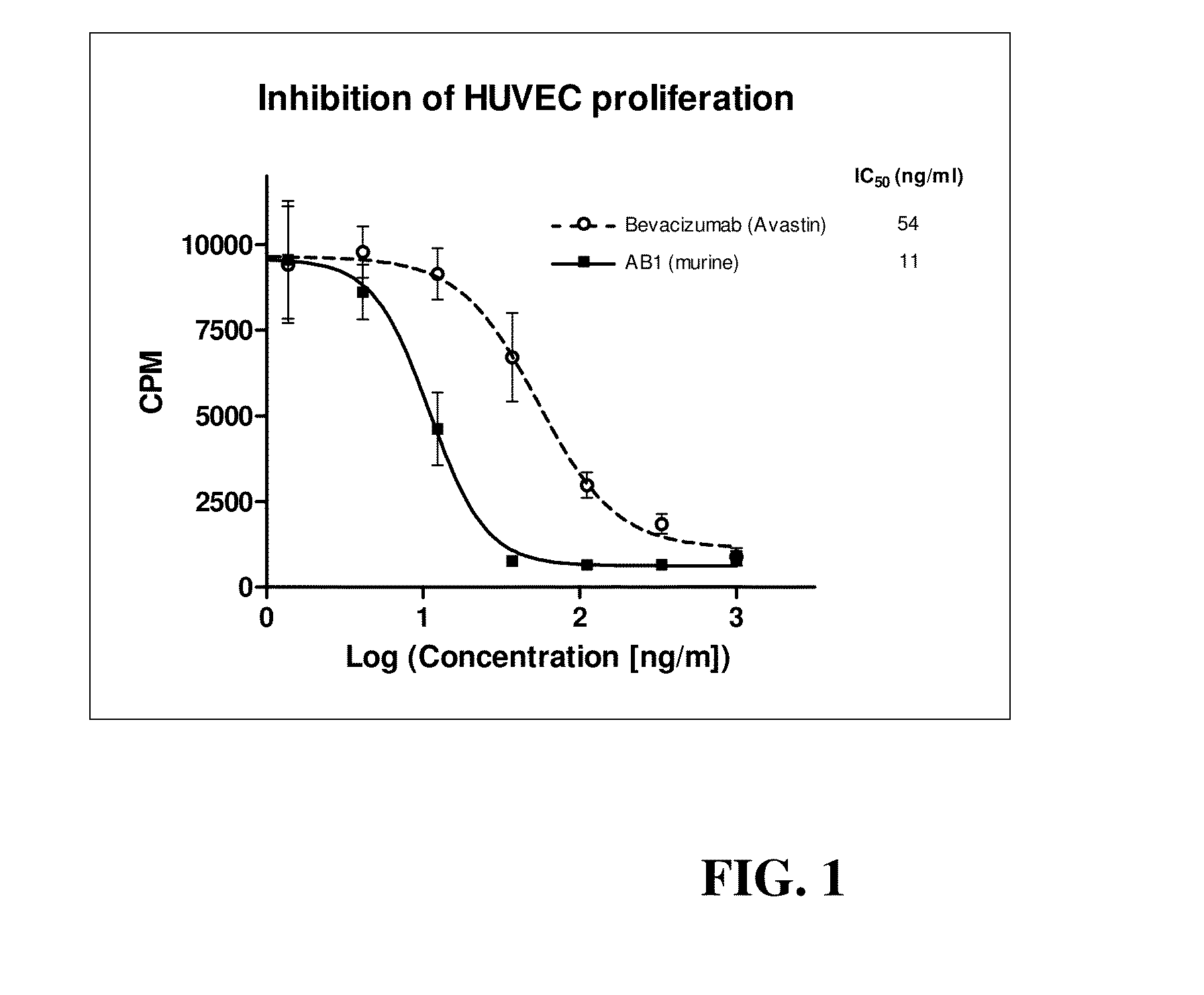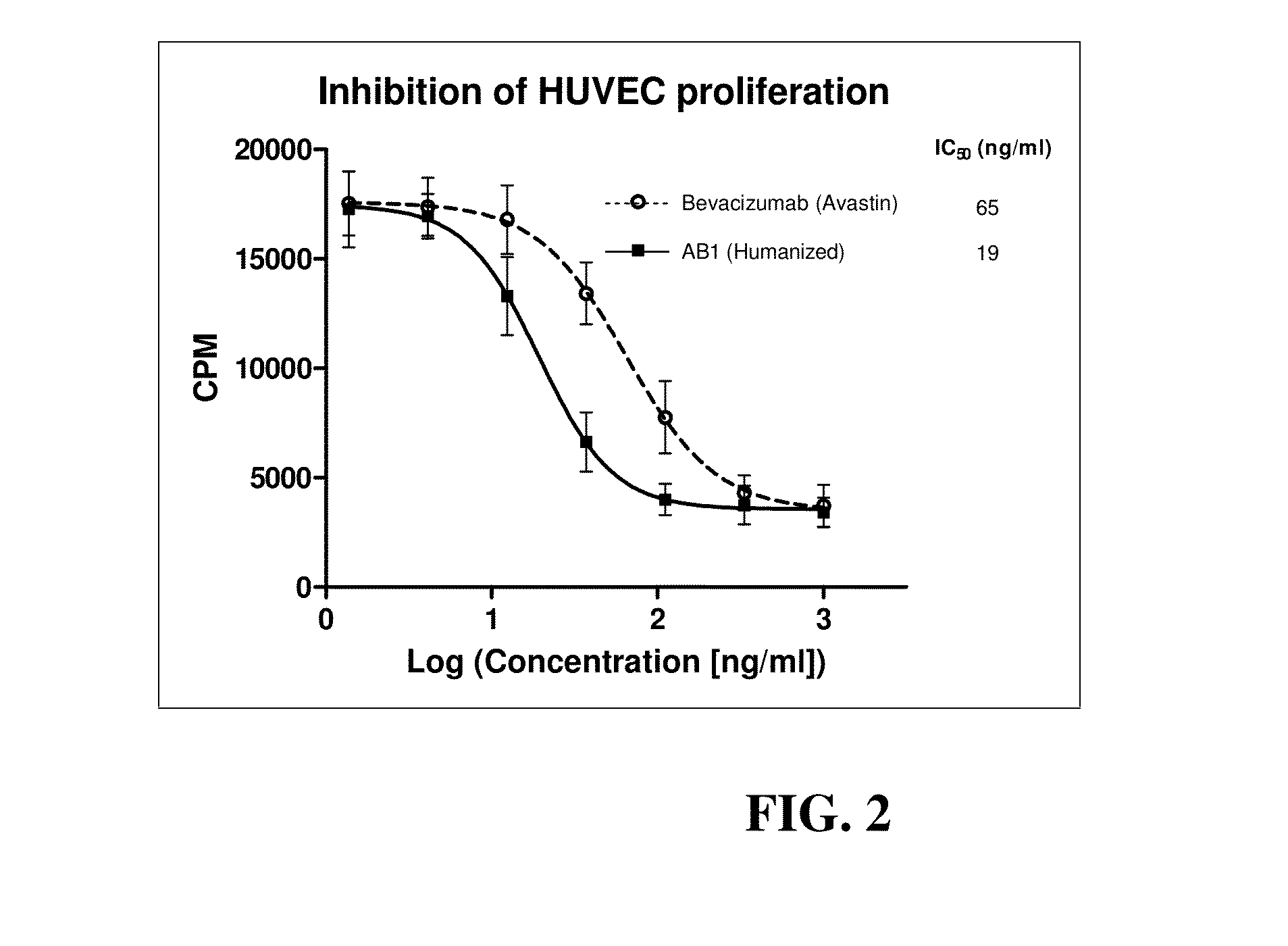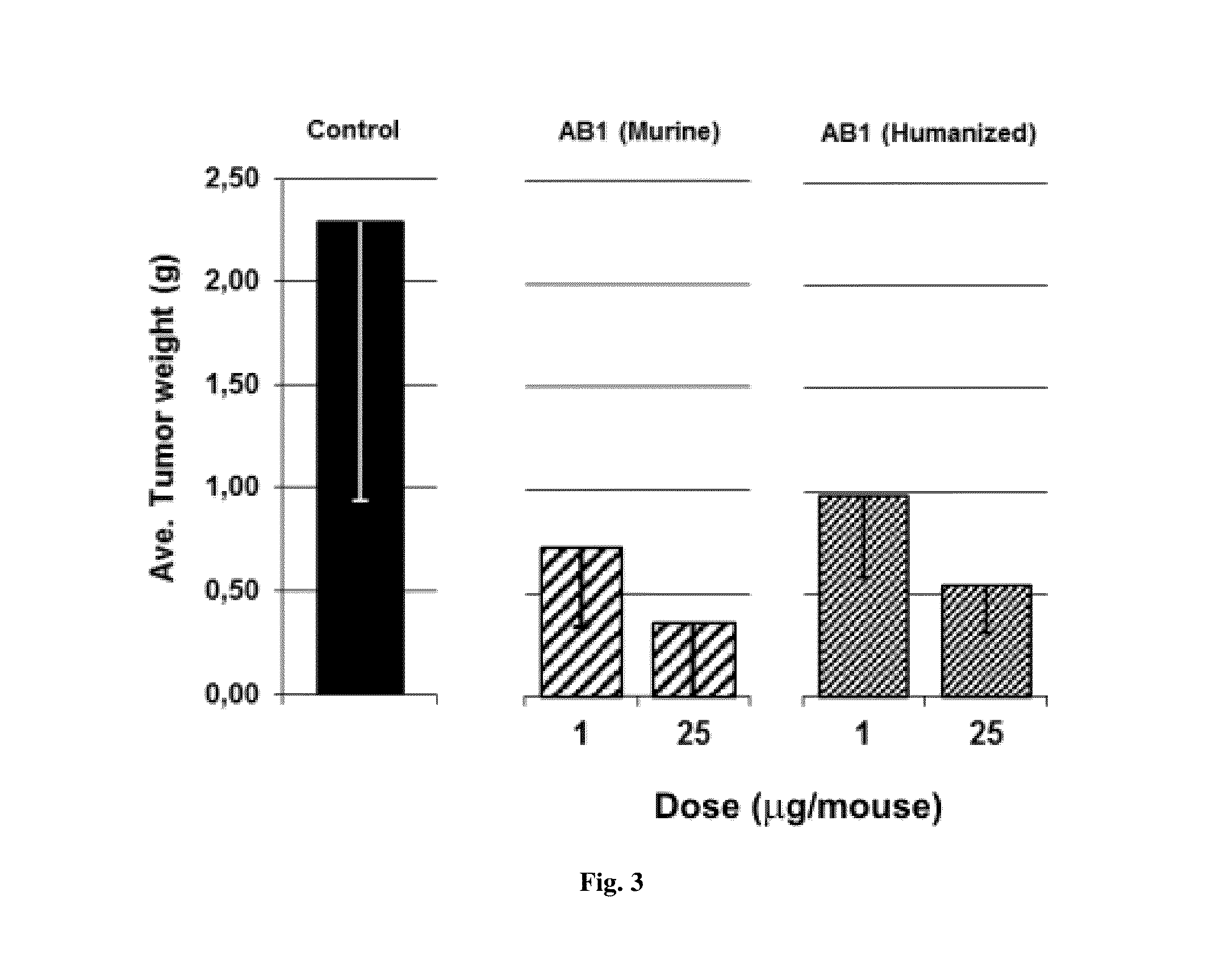Anti-human VEGF antibodies with unusually strong binding afinity to human VEGF-a and cross reactivity to human VEGF-b
a technology of human vegf and antibody, which is applied in the field of antihuman vegf antibodies with unusually high binding affinity for human vegf, can solve the problems that monoclonal antibodies against this region may be very difficult to obtain, and achieve high affinity to the effect of high homology
- Summary
- Abstract
- Description
- Claims
- Application Information
AI Technical Summary
Benefits of technology
Problems solved by technology
Method used
Image
Examples
example 1
Generation of Anti-VEGF Monoclonal Antibody
[0076]Monoclonal antibodies were generated in general according to Kohler's method (Kohler G et al 1975). However, the immunization scheme was unusual. In brief 4 week-old BALB / c female mice were injected once a month for a period of 10 months with human recombinant VEGF165 (SEQ ID NO:1) conjugated with cationized BSA (Imject® BSA and EDC Conjugation Kits, Pierce, France) in aluminum hydroxide solution (Imject® Alu, Pierce). Lymphocytes were harvested and fused with myeloma cells by treatment with polyethylene glycol (PEG 1500, BDH). After this, hybridoma cells were seeded and grown in HAT medium (hypoxanthine aminopterin thymidine, Sigma). The presence of specific antibodies was detected by direct ELISA against VEGF-A without BSA. A limited dilution method was used to select anti-humanVEGF antibody producing clones. Afterward, in order to select cell clones producing anti-humanVEGF-A antibodies of very high affinity, the HUVEC proliferatio...
example 2
Determination of the Dissociation Rate Constant (KD) of the Complex mMc-AB1-anti-VEGF-A / VEGF-A165
[0078]The affinity between the purified mouse monoclonal antibody mMc-AB1-anti-VEGF-A of this invention and VEGF-A165 (SEQ ID NO: 1) protein was determined by surface plasmon resonance (SPR). Affinity and Dissociation Constants of the complex mMc-AB1-anti-VEGF-A / VEGF-A165, KA and KD, respectively, were determined by kinetic analysis fitting a 1:1 interaction model using the Biacore T100 evaluation software. Results are shown in Table 1.
TABLE 1Kinetic parameters of the interactionmMcA-AB1-anti-VEGF-A / VEGF-A165ka (1 / Ms)kd (1 / s)KD (1 / M)KA (M)1.87 ± 0.02 × 1079.9 ± 0.4 × 10−55.3 × 10−121.9 × 1011
[0079]This result indicates that the mMc-AB1-anti-VEGF-A monoclonal antibody of this invention have an unusually high (in the pM range) affinity for human VEGF-A.
example 3
Mapping of VEGF-A165 epitopes recognized by mMc-AB1-anti-VEGF-A
[0080]Mapping of VEGF-A165 epitopes recognized by mMc-AB1-anti-VEGF-A was performed by LC Sciences (Huston, Tex.) using its PeptArray™ system. Overlapping peptides were synthesized according to the VEGF165 sequence (SEQ ID NO: 1). Conditions were: Binding buffer: 1×PBS, pH 7.0; Washing buffer: 1×PBS with 0.05% Tween-20 and 0.05% Triton X-100, pH 7.0. Binding condition was: 1 μg / mL mMc-AB1-anti-VEGF-A in binding buffer at 25° C., 1 hour. Detection condition was: 10 ng / mL goat anti-mouse IgG Cy5 conjugate in binding buffer at 25° C., 30 min. Scanning was at PMT 700 in a 635 nm channel. Results of this analysis indicated main contact of mMc-AB1-anti-VEGF-A with three VEGF-A165 (SEQ ID NO: 1) domains:
[0081]1: HHEVVKFMDVYQRSYCH (aa 11 to 27 of VEGF-A165)
[0082]2: YIFKPSCVPLMR (aa 44 to 56 of VEGF-A165)
[0083]3: QIMRIKPHQGQHIG (aa 79 to 92 of VEGF-A165)
[0084]Underlined are amino acids described as critical for binding of VEGF-A ...
PUM
| Property | Measurement | Unit |
|---|---|---|
| Affinity | aaaaa | aaaaa |
| Wettability | aaaaa | aaaaa |
Abstract
Description
Claims
Application Information
 Login to View More
Login to View More - R&D
- Intellectual Property
- Life Sciences
- Materials
- Tech Scout
- Unparalleled Data Quality
- Higher Quality Content
- 60% Fewer Hallucinations
Browse by: Latest US Patents, China's latest patents, Technical Efficacy Thesaurus, Application Domain, Technology Topic, Popular Technical Reports.
© 2025 PatSnap. All rights reserved.Legal|Privacy policy|Modern Slavery Act Transparency Statement|Sitemap|About US| Contact US: help@patsnap.com



